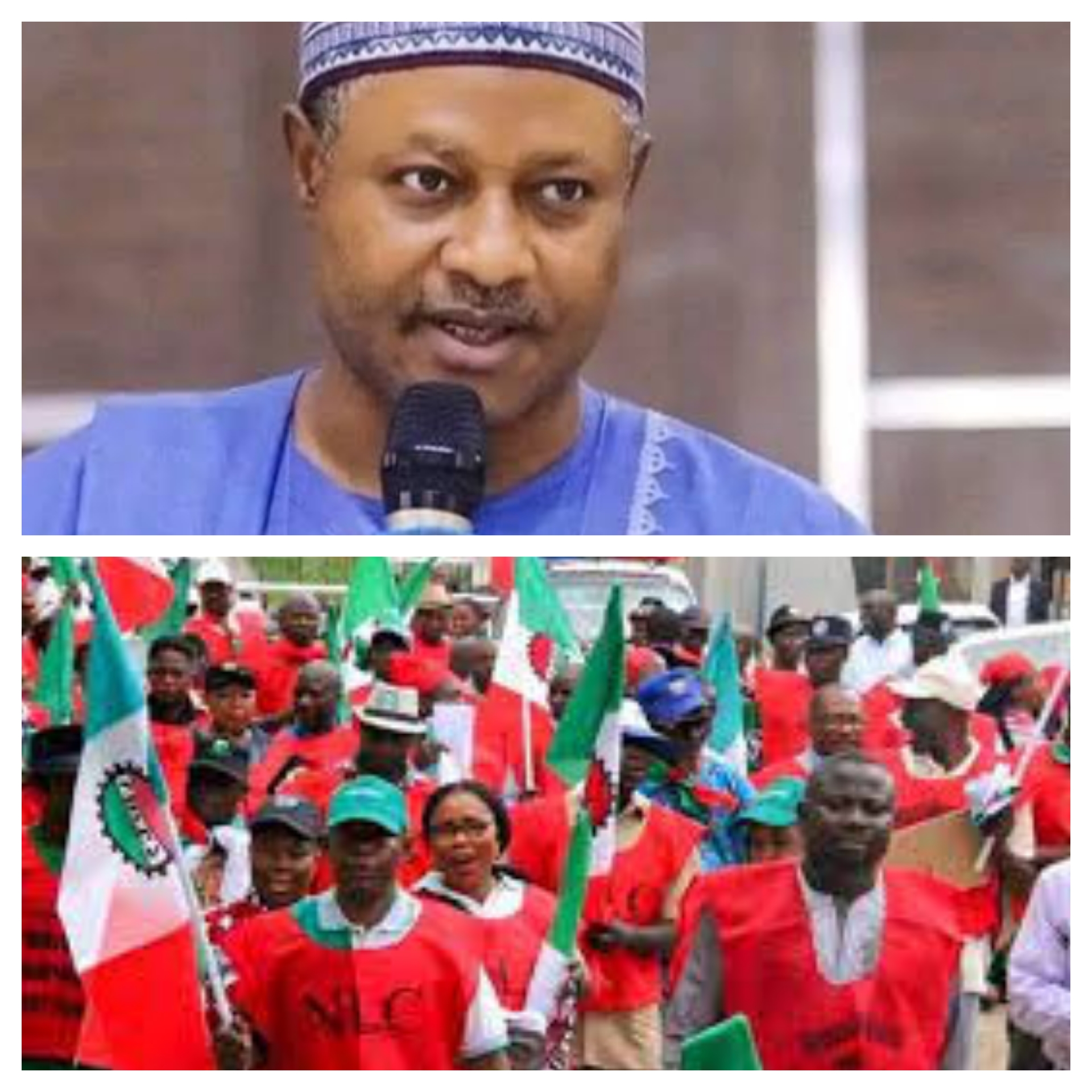The Kaduna State Governor Uba Sanni has thrown his weight behind the Nigerian workers who are presently on strike as a result of the fall out with the federal government over their request for a new minimum wage.

Governor Uba Sanni of Kaduna State receiving salutes from workers on Workers Day
It will be recalled that workers began industrial action yesterday Monday 3rd June, 2024. The Labour meant for the strike to have a greatly devastating effect on the government and the people of Nigeria as they shut down the national grid and threw the whole nation into perpetual darkness to mark the beginning of the strike.
Although, the strike has been suspended in less than 48 hours. But, it is not clear yet what is the next move from both parties.

President of the Nigerian Labour Congress, Joe Ajaero leading other workers on a rally
While many stakeholders in the country have castigated the union for going that far by shutting down the national grid in the name of strike and that their request for #495,000 a sum that is sixteen times more than the present minimum wage is unrealistic and does not make any economic sense.
However, Uba Sanni, the Kaduna State Governor has remarked that it is not wrong for the Nigerian workers to request for increased in wages, but such request must be reasonable. He emphasized that the #495, 000 minimum wage is not feasible.
"The Nigerian workers have the right to demand for increased wages and have the right to strike, but N495k as minimum wage is unfeasible.
He then advised the two parties to find a way of meeting at the middle and decide on what can work so to forestall a situation where labours will down-tool again.

Governor Uba Sanni with President Bola Tinubu

"The FG and the comrades in the NLC should agree on a reasonable ground that can be sustained by the economy.The submission of the Private sector and the possible impact of that on the lives of “wageless” Nigerians should be taken into consideration.
